The Debugging Bottleneck: A Manual Log-Sifting Expedition
Imagine a developer at a fast-growing company. A customer support agent reports a critical issue: a user's recent order is stuck in a "pending" state. The agent provides a customer ID and a request ID.
The developer's typical process is a familiar, painful dance:
- Context-Switching: Leave the IDE and open the logging platform in a browser.
- Manual Searching: Filter logs by the customer ID and request ID. This often returns thousands of log lines from various microservices, many of which are irrelevant.
- Cross-Referencing: The developer has to manually piece together a timeline. They find a log from the payment service, but it points to an error in the inventory service. They now have to find the related inventory service logs, which may have a different request ID or be missing critical context.
- Pattern Recognition: After what feels like an eternity of sifting and scrolling, they finally identify a specific error message. They have to manually connect this error to a recent code change, a configuration issue, or an external dependency.
This process is slow, tedious, and prone to human error. The Mean Time to Resolution (MTTR) is measured in hours, not minutes, and it's a huge drain on engineering resources.
The Mezmo Way: A Single Query, Instant Insights
Now, let's replay that same scenario with an AI agent powered by the Mezmo MCP Server.
Instead of a manual log search, the developer can stay within their IDE and make a single, natural language query to their AI assistant:
Behind the scenes, the MCP Server springs into action.
- Contextual Awareness: The AI agent, using the MCP Server, understands the relationships between the customer ID, request ID, and the various microservices involved. It knows that the payment service, order fulfillment service, and inventory service are all relevant to this transaction.
- Intelligent Data Retrieval: The MCP Server doesn't just pull all the logs. It retrieves a condensed, contextualized trace of the event, filtering out noise and highlighting the most relevant log lines. It provides the AI agent with a concise, rich dataset, perfectly tailored for its limited context window.
- Instant Analysis: The AI agent, with this pre-digested context, performs a rapid root cause analysis. It immediately identifies the error in the inventory service, cross-references it with recent deployment data, and pinpoints the exact line of code that caused a stock level miscalculation.
- Automated Summary: In seconds, the AI assistant provides a clear, concise summary: "Root cause found: an error in the inventory service, deployed in commit [commit_hash], caused an incorrect stock level calculation for item [item_id]. This prevented the order from being processed. Suggested fix: revert the commit or apply a hotfix."
This isn't a pipe dream. This is the power of a control plane that connects your tools with the right data, at the right time.
Beyond Debugging: A Smarter Ecosystem
The value of the Mezmo MCP Server extends far beyond individual debugging sessions. Its ability to provide rich context to AI agents unlocks a new world of automated observability workflows:
- Proactive Incident Response: Imagine an AI agent monitoring your data streams. When it detects an unusual pattern—like a sudden spike in 5xx errors from a specific service—it can automatically trigger a Slack notification, perform an initial RCA, and provide a summary of the potential issue, all before a human even notices.
- Automated Anomaly Detection: The agent can learn what "normal" looks like for your systems. It can then alert you to subtle deviations, like a gradual increase in latency or a strange pattern in user behavior, long before they escalate into a major incident.
- CI/CD Checks: Integrate the MCP Server into your deployment pipeline. After a new build is deployed, a simple command can trigger an agent to "check for new errors," automatically scanning the logs for any issues introduced by the new code, and blocking the deployment if something is found.
The Mezmo MCP Server is the engine that makes these powerful automations possible. It provides the crucial layer of connection and context that transforms your raw data into actionable intelligence, empowering your team to move from a reactive, manual workflow to a proactive, automated one. This is the future of observability, and we're just getting started.
Get Started with a Free Trial and try the Mezmo MCP server today.


.png)


.jpg)

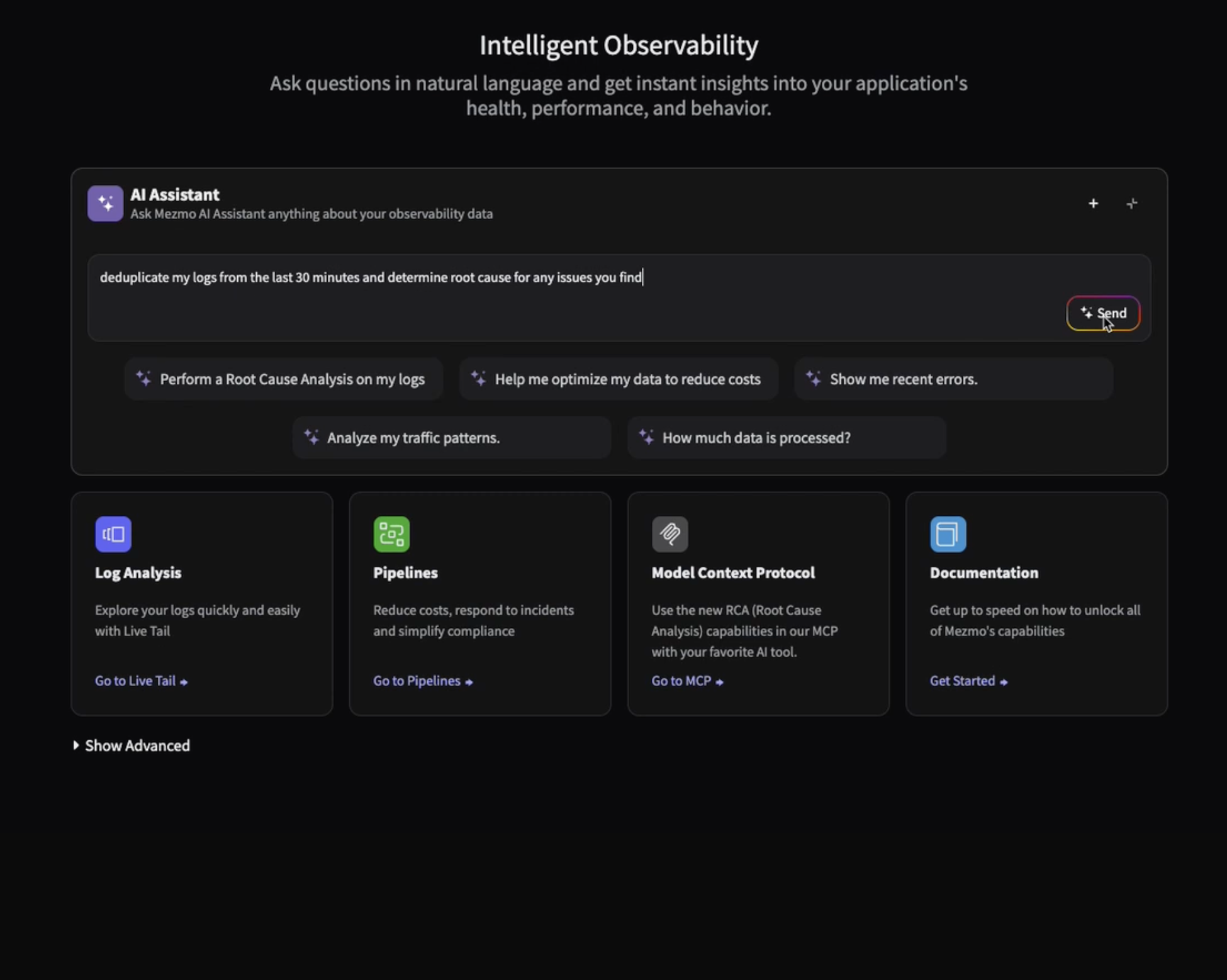
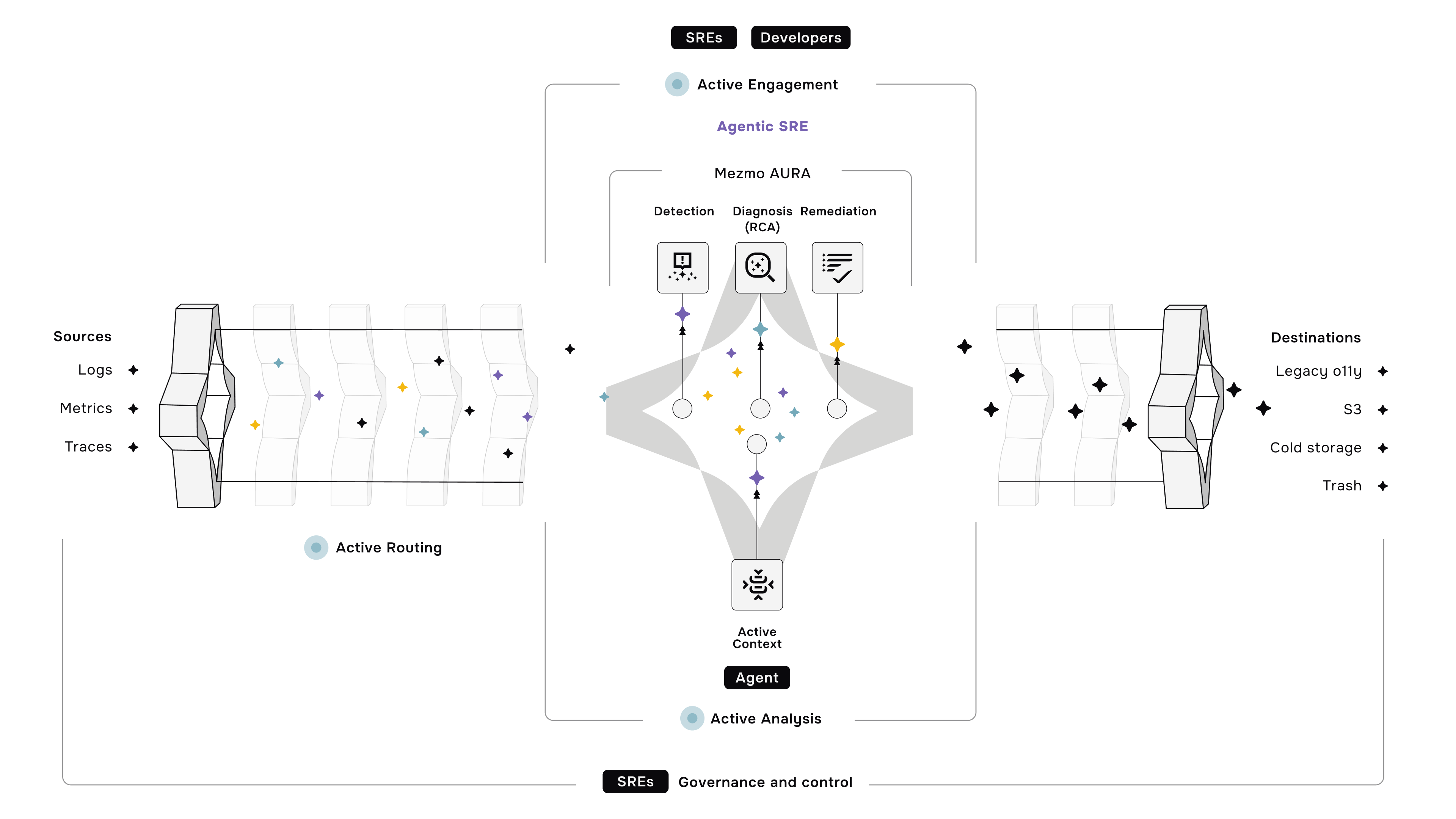






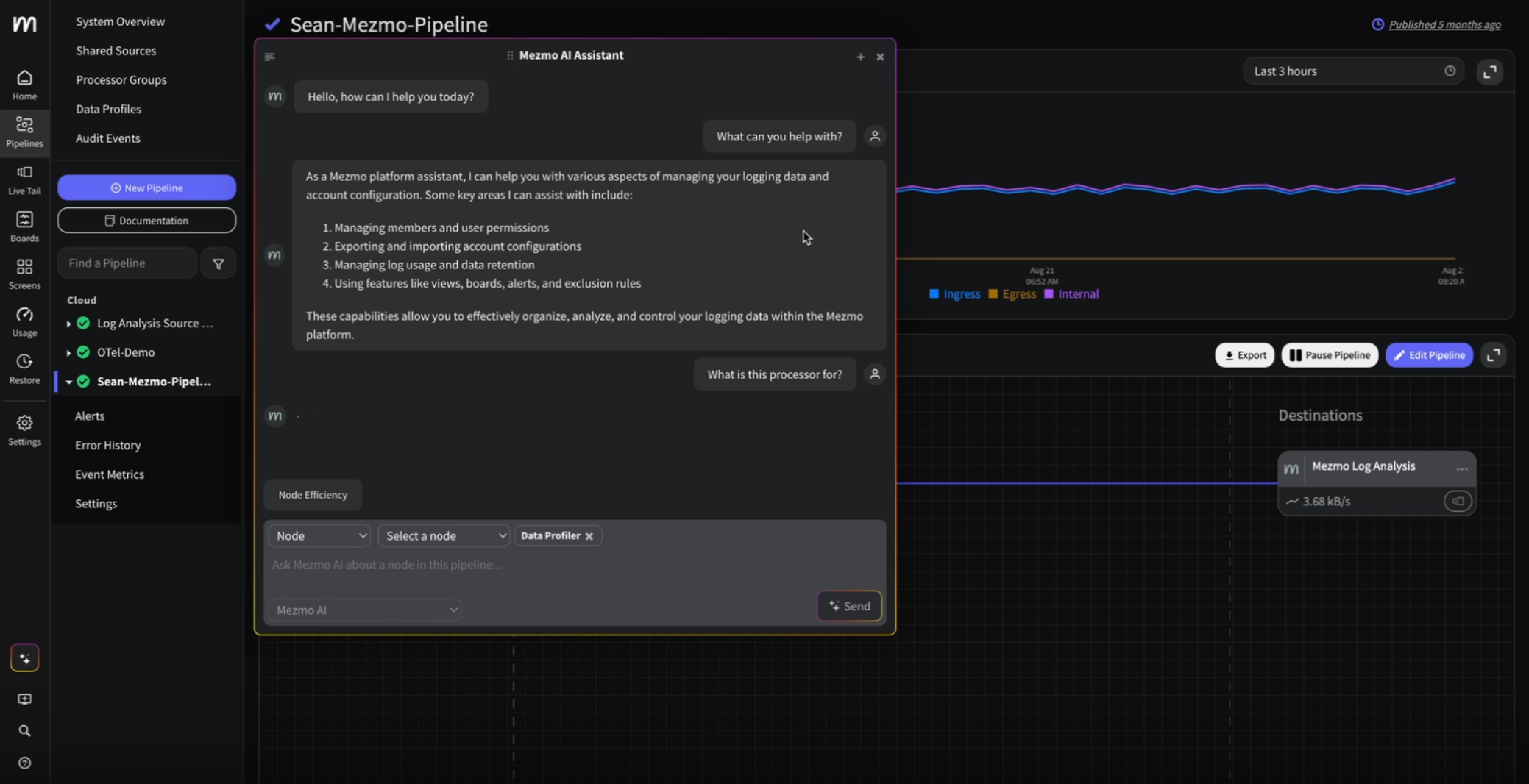
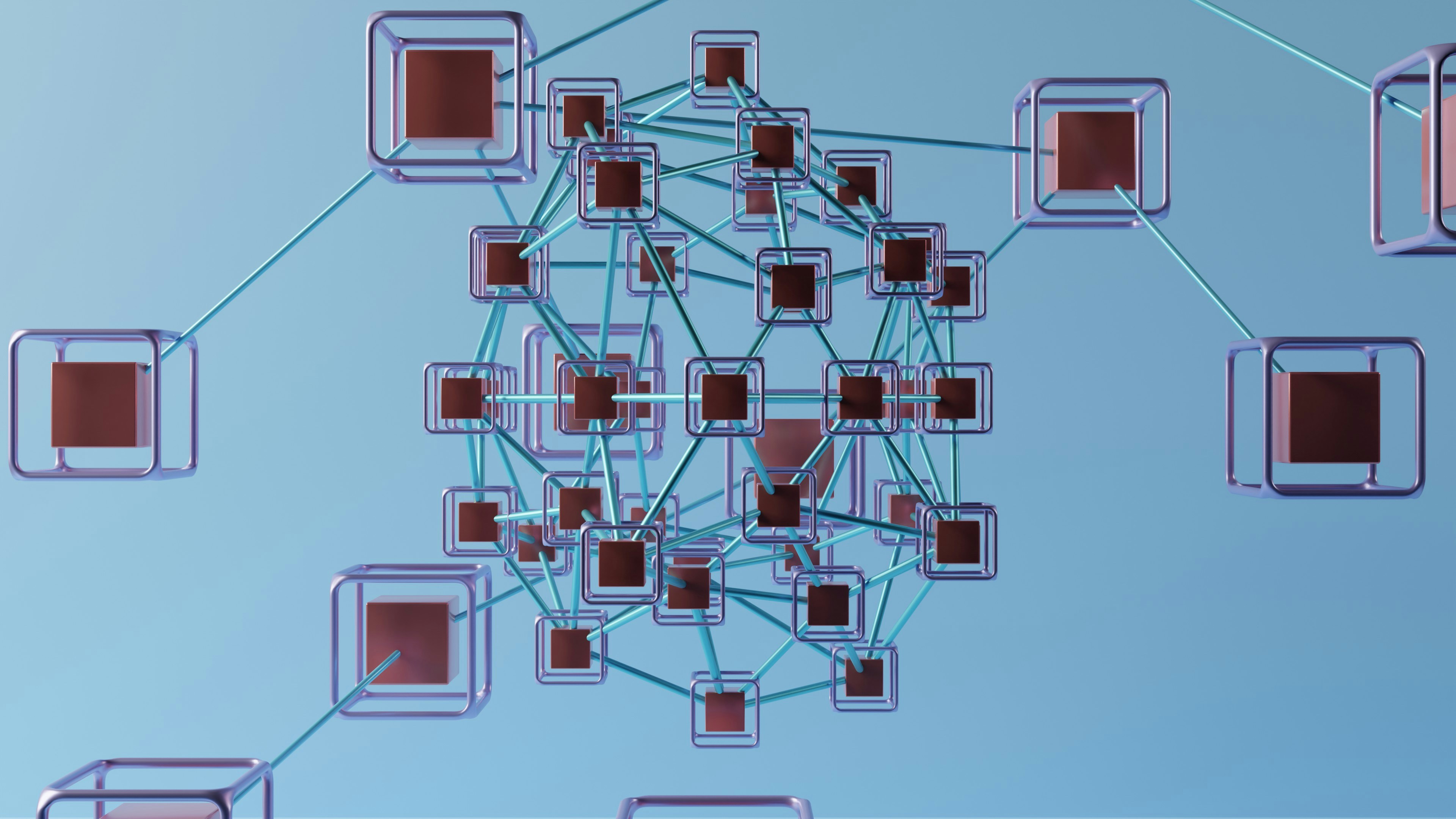

.png)




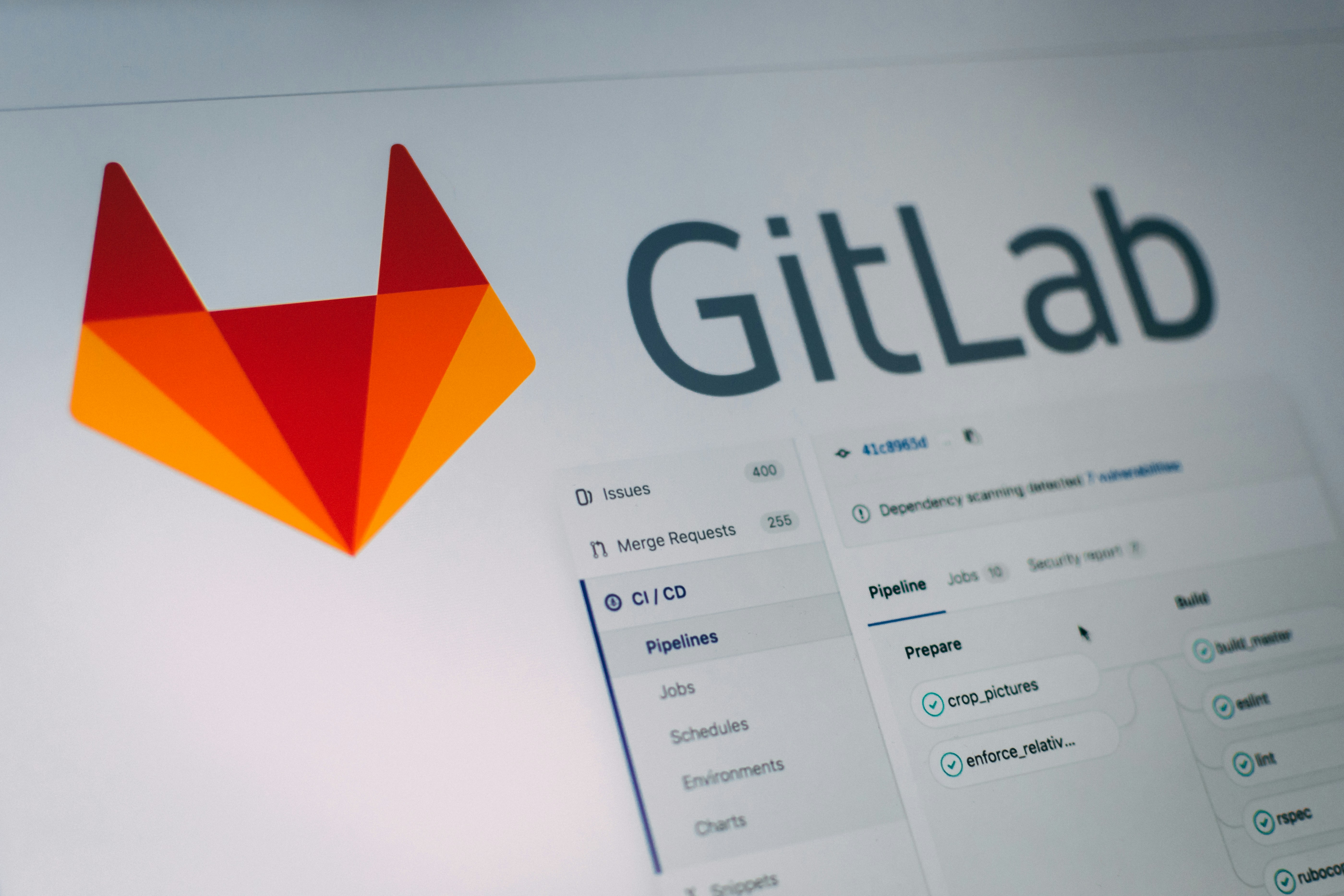
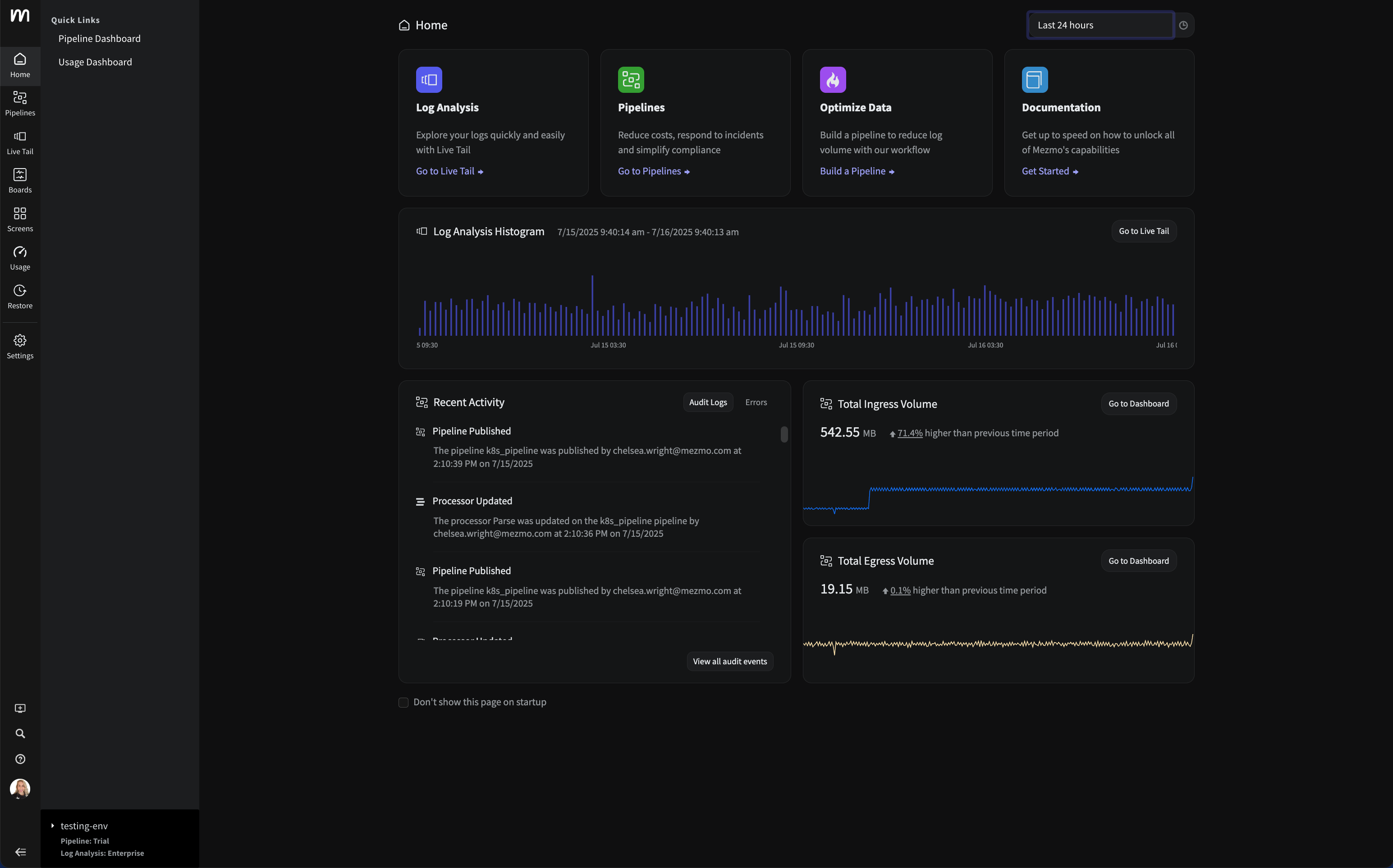


















.png)





























































